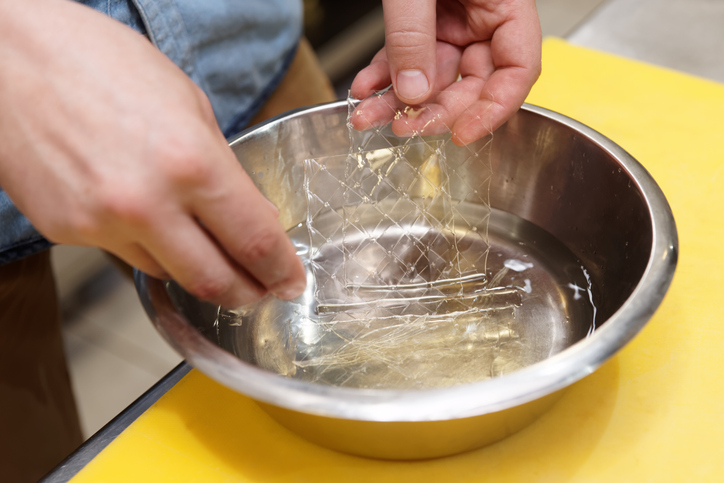US alt-dairy startup Perfect Day looks set to acquire India’s Sterling Biotech, one of the world’s largest manufacturers of gelatin, which entered liquidation in 2019, after placing the winning bid at an auction.
- Perfect Day, which produces dairy proteins without animals via microbial fermentation, bid ₹6.38 billion ($79.8 million) to acquire Sterling Biotech as a going concern.
- The reserve price had been set at ₹5.48 billion ($68.5 million), regulatory filings state.
- Perfect Day has paid ₹1.28 billion ($16 million) upfront to secure its bid.
- The California-based startup’s most recent funding round, its September 2021 Series D, saw it raise $350 million from investors including Canada Pension Plan Investment Board, Horizons Ventures, SK Group’s SK Inc, and Temasek.
Perfect Day declined to comment when contacted by AFN regarding the auction.
What we know so far:
The Economic Times reported in April that five bidders had reached the final stage of the auction process:
- Perfect Day
- India Gelatine & Chemicals–Shamrock Pharmachemi consortium
- Tessenderlo (Belgian industrial chemicals manufacturer)
- ACG Associated Capsules (world’s largest manufacturer of dosage products, based in Navi Mumbai)
- Progressive Star Finance (Kolkata-based financing provider and real estate investor)
As the winning bidder, Perfect Day will now need to complete various compliance processes before the deal can complete.
Among the listed assets up for grabs are two manufacturing plants in Gujarat state and another in Tamil Nadu, according to regulatory filings.
- The facility in Karakhadi, Gujarat, includes equipment for acidulation, dicalcium phosphate precipitation and drying, gelatin filtration and reboiling, and protein hydrolysis.
- The plant in Ooty, Tamil Nadu also contains equipment for gelatin and dicalcium phosphate production.
- The Masar, Gujarat plant contains several fermenters of between 2,000 and 160,000 liters capacity.
Why it matters:
Without confirmation from Perfect Day or the other parties, we can only speculate as to why it is attempting to purchase Sterling Biotech. What seems obvious is that the US startup is interested in Sterling Biotech’s equipment and capabilities.
There are a few possible reasons:
- Asia-Pacific expansion. In December 2020, Perfect Day announced the establishment of an R&D hub in Singapore in collaboration with the city-state’s Agency for Science, Technology & Research. With Asia’s dairy market expected to grow 6.88% over the next five years, hitting $247 billion in value by 2027 — and the backing of Asian investors like SK and Temasek — this points to the company’s ambitions in the region; the acquisition of ready-to-roll manufacturing capacity in India could significantly speed up time-to-market.
- Launching into new business areas. At the time time of its Series D round in September 2021, Perfect Day said it intended to “expand its offerings into ‘enterprise biology,’ providing technology development services” to other companies “in addition to [its own] ingredient innovation and consumer products” businesses. Sterling Biotech’s assets don’t necessarily fit the bill in that regard; in any case, they may prove useful for other verticals Perfect Day has planned.
- Animal-free gelatin? Perfect Day has struck a number of deals in the consumer goods space of late; of particular note was its subsidiary The Urgent Company’s acquisition of ice cream brand Coolhaus in December 2021, with the aim of swapping out the latter’s use of conventional animal-derived dairy for Perfect Day’s animal-free alternative. Could Perfect Day have similar ambitions for gelatin? It’s a $3 billion-plus global market that’s projected to double in size over the next five years. Gelatin is widely used in food and pharmaceutical manufacturing, but has conventionally been made using animal-derived materials such as bones and hides. Several startups have been working on animal-free versions of the substance using precision fermentation techniques like those deployed by Perfect Day to produce dairy proteins.
On background:
Gelatin is a key ingredient in pharmaceutical manufacturing, where it is used as a gelling agent. In the 1990s, entrepreneur brothers Chetan and Nitin Sandesara identified a gap in the market for supplying low-cost, pharmaceutical-grade gelatin to India’s booming generics industry.
They quickly established their first gelatin plants, keeping prices low by using the bones that are an abundant byproduct of India’s expansive buffalo-rearing industry.
This business eventually grew into Sterling Biotech, becoming the world’s sixth-largest manufacturer of pharmaceutical gelatin by the late 2010s, according to the Times.
However, the Sandesaras ran up massive debts and fled India for Nigeria. Owing a reported ₹8.1 billion ($104 million) to lenders, Sterling Biotech was forced into liquidation as a going concern in May 2019.





